One of the breakthroughs identified in the Resolution of the 18th Yen Mo District Party Congress, term 2020-2025 is "Developing commodity agriculture in an organic direction, applying high technology, ensuring food safety and focusing on mobilizing resources, promoting the construction of model new rural communes and model new rural villages". To achieve this goal, since the beginning of the term, Yen Mo district has had many policies and implemented solutions to encourage farmers, cooperatives, and enterprises to invest in building high-tech agricultural production models. The results achieved have gradually formed a concentrated, large-scale commodity agriculture, making Yen Mo the "capital" of organic agricultural products.
"Sweet fruit" from policy
Mr. Nguyen Van Quyen's family in Yen Phong commune (Yen Mo district) has over 9,000 m2 of greenhouses growing netted melons. At this time, Mr. Quyen's family's netted melons are preparing for harvest. Mr. Quyen is excited because this crop of melons meets all the requirements of weight, beautiful grain and sweet quality, right at the time when market demand is high. According to estimates, this netted melon crop will bring Mr. Quyen's family an income of over 100 million VND, after deducting production costs, Mr. Quyen makes half a profit. Compared to traditional production, this income is many times higher.
Having been in agriculture for many years like Mr. Quyen, growing crops and raising livestock are all too familiar. But one day owning thousands of square meters of greenhouses to grow valuable plants, using high technology, is still like a dream for this man in his 40s.
Mr. Quyen said: With the desire to promote production development towards valuable goods, meeting market demand, in early 2022, I intended to switch to high-tech agricultural production. At this time, the People's Committee of Yen Mo district deployed the Project "Developing commodity agriculture in the direction of organic, applying high technology, ensuring food safety and building new rural areas in the district in the period of 2022-2025", he quickly seized the opportunity. On the 5-hectare area that had been bid, he boldly planned and invested in building 2 greenhouses (each house has an area of 1,000m2) to grow specialized new melon varieties, which are green and yellow mesh melons, with a water-saving irrigation system, automatic watering and fertilizer control on smartphones. The initial cost for a greenhouse with an area of 1,000m2 is 750 million VND. In which, according to the Project, the district budget supports 40% of the cost of installing greenhouses, equivalent to 300 million VND/greenhouse.
According to Mr. Quyen, greenhouse technology helps to shield from rain and sun, prevent insects from entering, so the melons grow quickly, the fruit has beautiful mesh patterns, uniform size, especially the growers can completely take the initiative in growing the crop without depending on the weather like traditional production. The entire mesh pattern melon area is cared for by Mr. Quyen's family using biological products and organic fertilizers, so the product ensures quality and safety, protecting the health of both growers and consumers.
According to Mr. Quyen's rough calculation, each 1,000m2 greenhouse will yield about 3 tons of fruit/crop, with an average selling price of 40,000 VND/kg, with an expected revenue of about 110-120 million VND/crop. A melon production season lasts about 70 days, 4 crops are grown per year and the annual revenue is estimated at 440 million VND/1,000 m2. Currently, in addition to growing melons, Mr. Quyen has also expanded the greenhouse area, experimenting with growing Korean milk grapes, expected to be harvested next year.
Mr. Quyen's family's green and yellow netted melon growing model is one of the first models of growing netted melons using high technology supported by Yen Mo District People's Committee under the Project "Developing agriculture in an organic direction, applying high technology, ensuring food safety and building new rural areas in the period 2022-2025".
The successful implementation of the model will create a breakthrough in the application of science and technology to local production, avoiding unfavorable weather factors, helping to increase productivity, quality and crop yield, especially creating safe products that are beneficial to consumers' health.
Sustainable direction
In recent years, along with the policy system of the Central and the province, Yen Mo district has had many mechanisms and policies to encourage agricultural and rural development. In particular, in 2022, Yen Mo District People's Council passed Resolution No. 04/NQHDND on approving Project No. 04/DA-UBND dated March 14, 2022 on developing organic agricultural commodities, applying high technology, ensuring food safety and building new rural areas in the district in the period of 2022-2025.
Implementing the Project, Yen Mo district has focused on supporting 40% of the cost of building a number of greenhouse and net house models for growing melons and clean vegetables, mainly in Yen Phong, Yen Tu and Mai Son communes; supporting 50% of the cost of fertilizers and pesticides for 200 hectares of rice produced using organic methods; supporting 50% of the cost of purchasing a fertilizer separator.
Since its implementation, 6 production households have received support for installing greenhouses and water-saving irrigation systems with a total area of 10,000 m2, with a support level of 300 million VND/1,000 m2 of greenhouses. All production households have successfully built greenhouse application models for growing high-value crops such as melons, Korean melons, Thai Kim melons, etc.
The policy's driving force has created conditions for people to actively deploy and expand the area of high-tech application in agricultural production. Yen Mo district has formed many concentrated vegetable and fruit production areas. Up to now, in the district, there are 11 households building greenhouses and water-saving irrigation systems, with over 26,000 m2 to grow high-value crops. The estimated value of the crop is 4-4.5 billion VND/ha/year, 20-25 times higher than traditional production.
The output of products is favorable for consumption in and outside the province. In addition, the district has also formed a concentrated vegetable and fruit production area, ensuring food safety in the communes of Yen Phong, Yen Lam, Yen Thai, Yen Mac... The whole district has 14 agricultural cooperatives linked with 8 enterprises inside and outside the province to produce 450-500 hectares of potatoes, sweet corn, chili, soybeans, vegetables... ensuring stable output, people feel secure in production.
Ms. Le Thi Linh, Deputy Head of the Department of Agriculture and Rural Development of Yen Mo district, added: The project "Developing agricultural production in an organic direction, applying high technology, ensuring food safety and building new rural areas in the area in the period of 2022-2025" sets a target that by the end of 2025, the whole district will have 1,300 hectares of rice or more produced in an organic direction; 100 hectares of vegetables, tubers and fruits applying high technology; converting 1,000 hectares of ineffective rice land to new farming models; having 8-10 farms, 10-15 households applying high technology, ensuring biosafety and environmental sanitation.
In 2023 and the following years, Yen Mo district strives to expand the area of organic rice production. This is a difficult task, because out of the total 12,000-13,000 hectares of rice cultivated annually, local people mainly produce according to traditional methods (mainly inorganic farming). With this form of farming, product quality has not met market demand, but because it is a long-standing habit, changing is not easy.
As a specialized agency, the Department of Agriculture and Rural Development of Yen Mo district will coordinate with localities to actively promote propaganda and mobilization work to help farmers switch to organic rice production.
Yen Mo farmers are facing the opportunity to create safe, high-quality products, increase competitiveness in the international integration process and protect the ecological environment; at the same time, well implement the district's goals on agricultural production in each stage, gradually changing the face of the countryside.
Dao Hang
Source



![[Photo] Fall Fair 2025 - An attractive experience](https://vphoto.vietnam.vn/thumb/1200x675/vietnam/resource/IMAGE/2025/10/30/1761791564603_1761738410688-jpg.webp)
![[Photo] New-era Party members in the "Green Industrial Park"](https://vphoto.vietnam.vn/thumb/1200x675/vietnam/resource/IMAGE/2025/10/30/1761789456888_1-dsc-5556-jpg.webp)
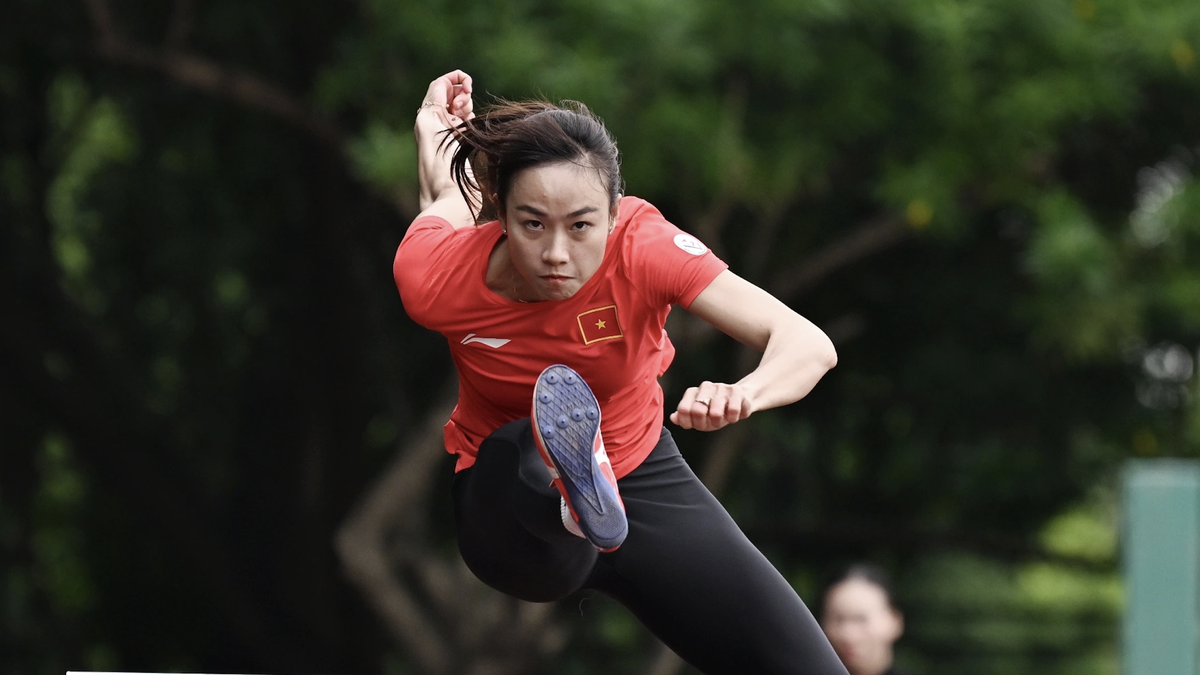
![[Photo] Human love in the flood in Hue](https://vphoto.vietnam.vn/thumb/1200x675/vietnam/resource/IMAGE/2025/10/29/1761740905727_4125427122470875256-2-jpg.webp)
![[Photo] Prime Minister Pham Minh Chinh chaired a meeting to evaluate the operation of the two-level local government model.](https://vphoto.vietnam.vn/thumb/1200x675/vietnam/resource/IMAGE/2025/10/29/1761751710674_dsc-7999-jpg.webp)
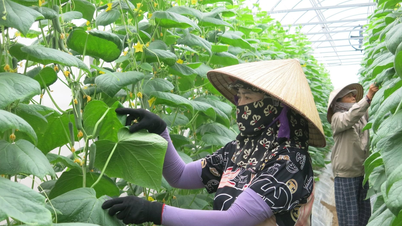

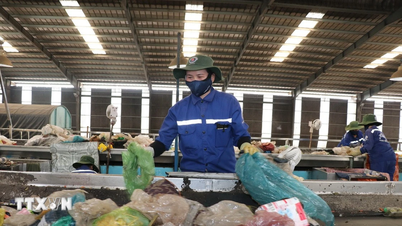



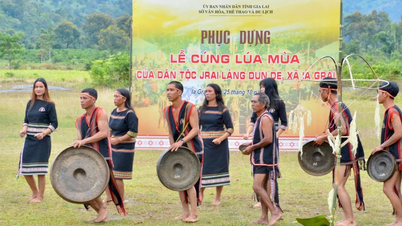

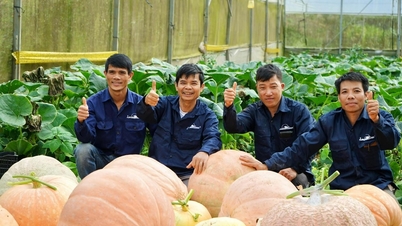


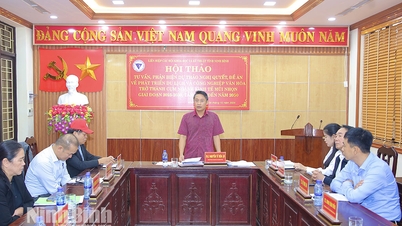

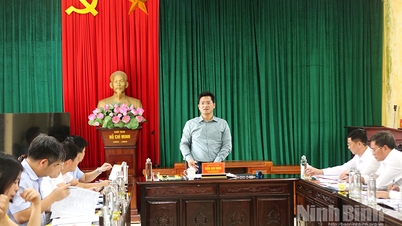

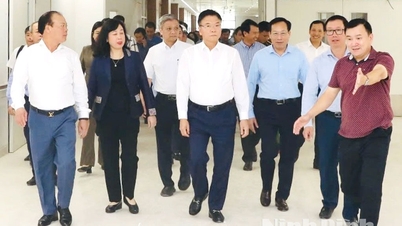
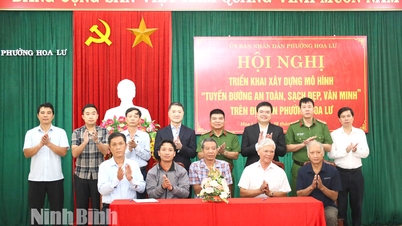







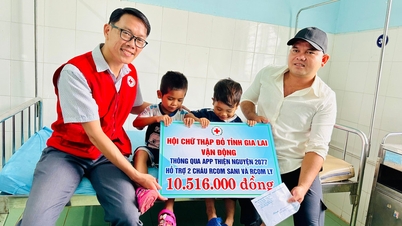
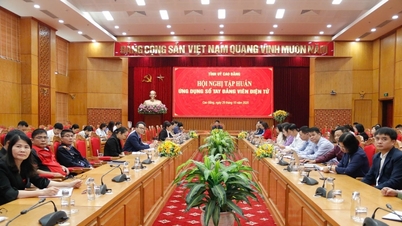

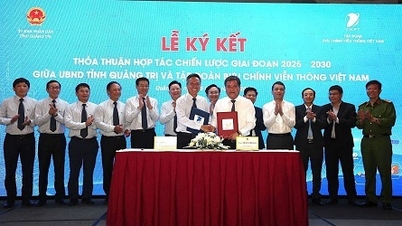
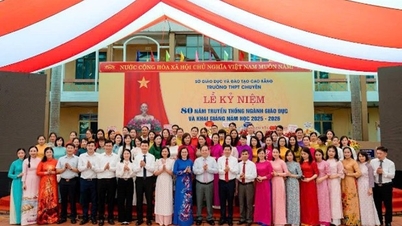
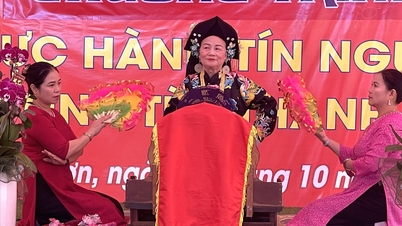










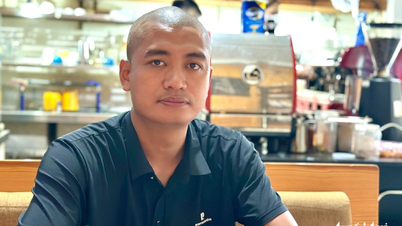

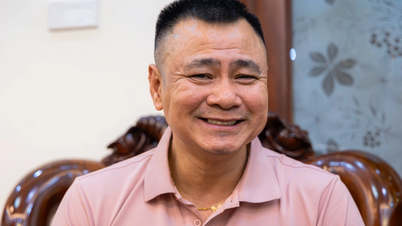











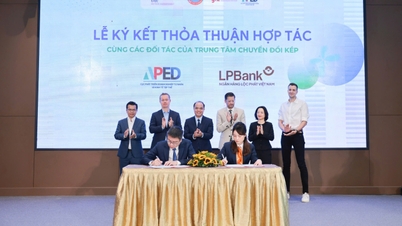

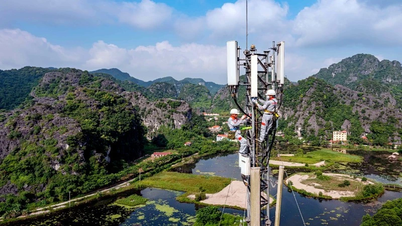













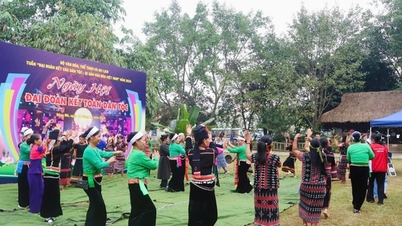

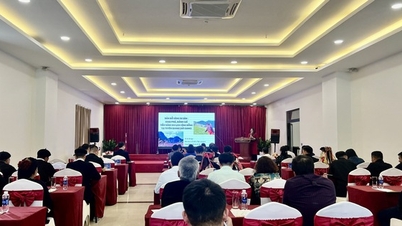
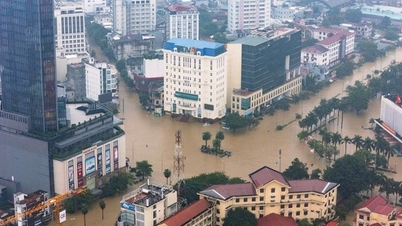
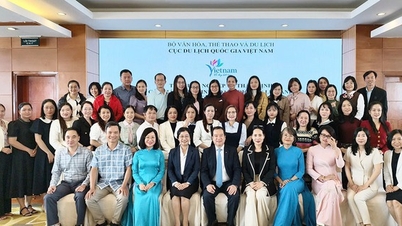

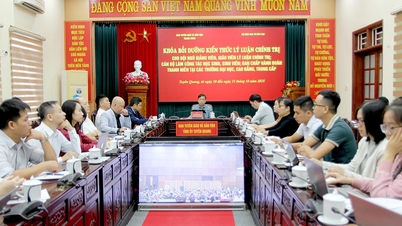



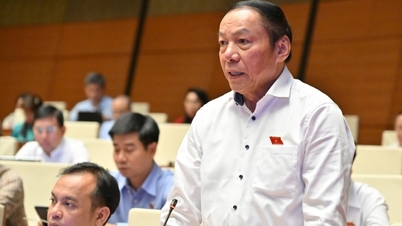


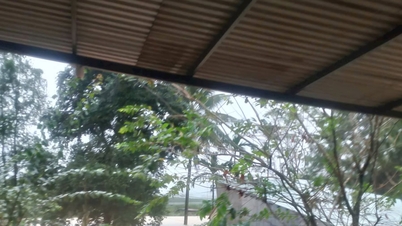












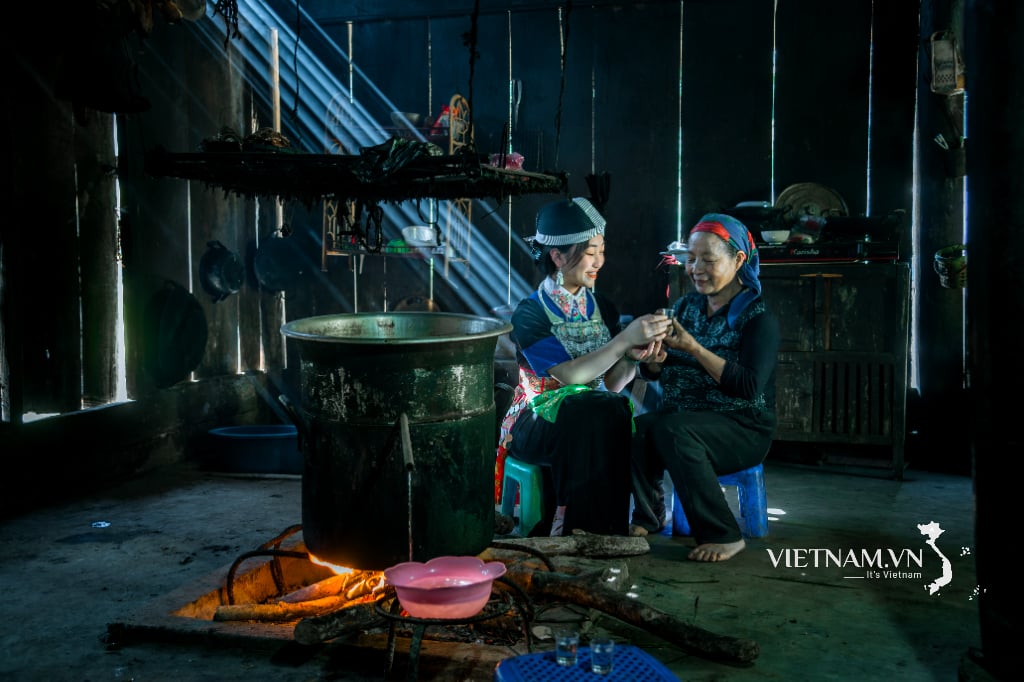



Comment (0)